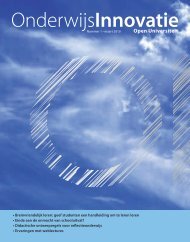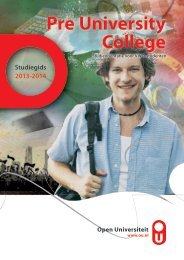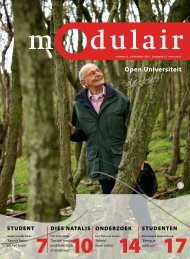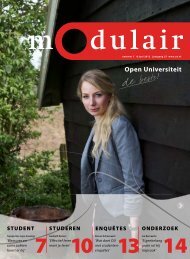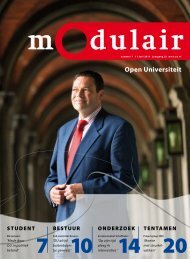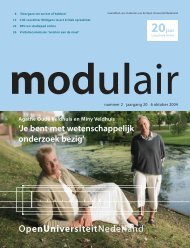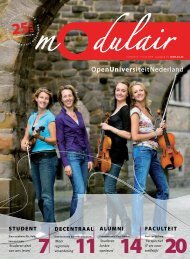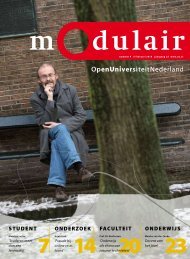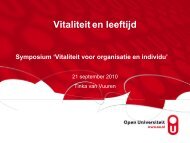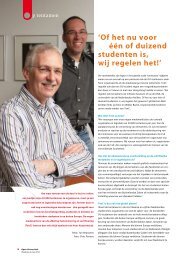intellectual property rights and distance education institutions
intellectual property rights and distance education institutions
intellectual property rights and distance education institutions
Create successful ePaper yourself
Turn your PDF publications into a flip-book with our unique Google optimized e-Paper software.
In the context of considerations based on ethics, it would be pertinent to state that none of<br />
the above mentioned types of ethics guarantees that the <strong>rights</strong> of the general public would be<br />
guaranteed unless <strong>and</strong> until a strong government mechanism comes into play. Free market<br />
<strong>and</strong> Intellectual Property Rights based ethics really do not jell together to create the good of<br />
the greatest number.<br />
The fact is that the situation today follows closely a Pareto Optimal situation. According to<br />
this paradigm, the welfare of the society cannot be enhanced through a redistribution of the<br />
existing allocation of resources. This implies that if we redistribute existing benefits to the IPR<br />
holder in favour of the general public, the consequent redistribution may become Pareto<br />
inoptimal. The prevalent thought process seems to follow this line <strong>and</strong> therefore is not in<br />
favour of public <strong>distance</strong> <strong>education</strong> systems.<br />
Another mechanism for deciding the quantum of <strong>education</strong>al material to be put in the public<br />
sphere is the principle of equi – marginal proportions. A public university can go on<br />
offering programmes <strong>and</strong> course material in the public domain till that point where the benefit<br />
of putting an additional course material in the public domain falls short of the cost (both<br />
financial <strong>and</strong> logistic) of doing the same. But here too the problem is one of assessment.<br />
Who will decide <strong>and</strong> by what mechanism whether the proportion so conceived is equimarginal<br />
or not. Further, the assessment mechanism has also to be very rigorous.<br />
Taking into consideration, the diverse spectrum of issues mentioned above, it is clear that<br />
the aspects related to ethics are indeed vexed <strong>and</strong> therefore need studies much beyond the<br />
scope of this paper.<br />
Conclusion<br />
The era of globalisation has left its imprint on all of human endeavours in an indelible way.<br />
The <strong>education</strong> sector <strong>and</strong> more importantly the <strong>distance</strong> <strong>education</strong> sector has not remained<br />
aloof from this trend. One of the concomitants of the process of globalisation is a strong<br />
Intellectual Property Rights regime. IPRs have a dominant role to play in the making or<br />
marring of <strong>distance</strong> <strong>education</strong> systems around the world. All <strong>distance</strong> <strong>education</strong> <strong>institutions</strong><br />
have to devote greater time <strong>and</strong> attention to IPR management so that they do not find<br />
themselves on the wrong side of the IPR regime. Further, greater attention has to be paid to<br />
in house research <strong>and</strong> development. There in would lay the success of <strong>distance</strong> <strong>education</strong><br />
<strong>institutions</strong> around the world.<br />
Suggestions<br />
At the level of framing IPR policies, number of suggestions could be given. These are noted<br />
below<br />
• At present very few <strong>distance</strong> <strong>education</strong> <strong>institutions</strong> have a separate cell/ division to<br />
manage IPRs. This has to change, it is necessary that a separate dedicated cell<br />
functions to manage <strong>and</strong> implement IPR related policies. This is especially important<br />
in mega universities like IGNOU where in future a number of IPR related issues may<br />
crop up.<br />
• Managing IPRs is as much an issue of managing research <strong>and</strong> development with in<br />
the <strong>institutions</strong>. An efficient IPR manager should do all possible to encourage<br />
outcome based research that not only saves on IPP costs of hiring but also enables<br />
the institution to earn royalty by marketing in house patents.<br />
• Due to the very concept of openness, <strong>distance</strong> <strong>education</strong> <strong>institutions</strong> are most<br />
vulnerable to IPR related injunctions. This is true especially in the case of computer<br />
based technologies in which a number of algorithms form a single programme. As




